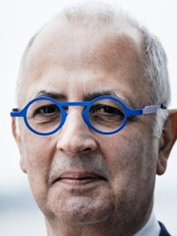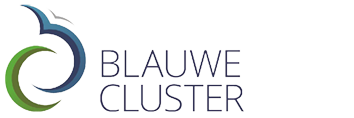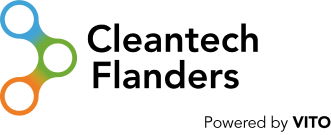The blue economy, as it is known, now accounts for over five percent of Flanders’ gross domestic product. This makes it just as large as the chemistry or food sector. As a Flemish government spearhead cluster, Blue Cluster is encouraging ‘blue’ innovation and the valorisation of this, in Flanders and Belgium as well as internationally.
Since it was established in late 2017, Blue Cluster has been the preferred partner for companies wishing to develop innovative ideas in the sustainable blue economy, i.e. sustainable economic activities linked to the sea and the ocean. We are supporting these companies first and foremost in a strategic sense, by developing highly detailed roadmaps along with them and the other partners involved in our operation. This way, we are reducing the risks involved for them in innovation, and we are doing so by focusing on various domains. It is of course helpful that we can also support companies financially as one of the Flemish government’s official spearhead clusters. Alongside Flemish resources (from Flanders Innovation & Entrepreneurship), we also help with funding requests aimed at federal, European or other subsidy providers.
Nearly two hundred members
Central to our operation is the cluster in which companies – large and small, and often in competition with one another – come together. Consortia are formed in which innovations can flourish through match-making. At present, we have nearly two hundred members, and that number is steadily growing. No less than 118 of them are SMEs. Besides companies, all Flemish universities and major knowledge institutions are also members of Blue Cluster. Naturally, we are also a strong and reliable partner for the government, at any policy level. It is precisely the interaction with the government, citizens, companies and the world of academia & research that has enabled us to achieve our ambitions in the sustainable blue economy.
When referring to the blue economy in Flanders, we are of course looking to the North Sea in the first instance. The surface area of our territorial waters is limited. We therefore argue for making optimum use of the available space. This can be done by combining wind farms with floating solar panels, for example. Nonetheless, the possibilities for growth in our part of the North Sea are limited, which is why we expressly opt for internationalisation. To this end, we have at our disposal an intrinsic knowledge of the markets in which our companies are developing and where their future opportunities lie – in ‘our’ North Sea or beyond.
Pioneer in offshore wind energy
Our activities range across six areas: coastal protection and use of mineral resources, sustainable seafood & marine biotechnology, maritime connection, renewable energy & freshwater production, ocean pollution & waste solutions, and sustainable blue tourism. The central threads running through all these areas are our ecosystem approach and a concept we call ‘smart sea’.
A sustainable blue economy implies that we resolutely opt for ecological, economical and social objectives for blue growth. After all, without a healthy ecosystem, no sustainable economic activities will be possible. At the same time, we are in search of applications for digitalisation and other smart technologies, such as innovative measurement and regulation techniques, ingenious computer models or advanced drones. This way, we help achieve the UN’s Sustainable Development Goals (the SDGs).
One of the areas in which we are definitely playing a pioneering role is that of offshore wind energy. At present, there are nine wind farms in our North Sea, the oldest dating from 2009. Together, they account for a capacity of 2.3 gigawatts, and with the new Princess Elisabeth Zone to come, this will even be 5.6 gigawatts by 2026. This puts Belgium in fifth place worldwide as regards installed capacity. It is also thanks to this pioneering role that one in three offshore wind turbines in the world has been installed by a Flemish company. Through our internationalisation strategy, we aim to retain that leading position, in part through innovation.
It should be clear: a large part of Flanders’ future lies at, in or on the sea. The blue economy already accounts for 5.2 percent of Flemish GDP, and it provides work for 77,000 employees. This means it can contend with the chemistry and food sectors – two sectors that are traditionally viewed as stalwarts of the Flemish economy.

Marc Nuytemans, CEO of Blue Cluster



